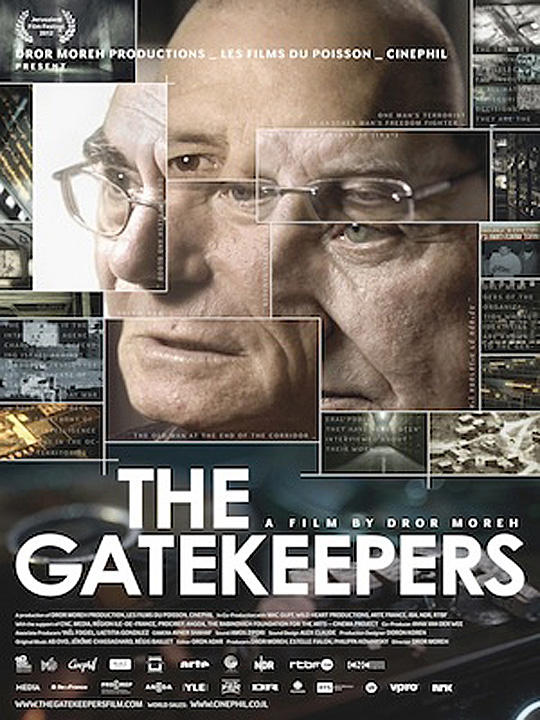Haven’t we seen this movie before, and don’t we know how it ends?
A U.S. secretary of state, this time played by John Kerry, shuttles back and forth between Israel and the Palestinian Authority trying to nudge both sides into negotiations. Real negotiations, toward what every U.S. administration has declared it wants: a two-state solution.
Henry Kissinger. James Baker. Warren Christopher. And others. Secretaries of state have all tried and failed. The intractable dispute defeated their efforts. The plot is the same, the characters change. The result never alters: deadlock. It can therefore be called the world’s most reviewed – and most boring – movie, because despite all the motion, nothing fundamentally happens. There is action, but no movement.
However, there is one recent movie about the Israeli-Palestinian dispute that is not boring. The Gatekeepers, an Academy Award-nominated film in 2012, is a must-see.
It should be given a private screening for Prime Minister Stephen Harper and his Israel-can-do-no-wrong government. Quite likely, he and his colleagues would dismiss the film, just as right-wing politicians have done in Israel. Mr. Harper’s friend, Israeli Prime Minister Benjamin Netanyahu, defiantly declared he wouldn’t see the film, even after it won an Oscar nomination.
Hard men make peace, or would make peace because they have seen war. That’s the blunt message of The Gatekeepers, which is based on extraordinary sit-down interviews with the surviving heads of Israel’s Shin Bet security agency. For a combined 33 years, these men ran the secretive agency. None had ever spoken about their experiences on camera before.
They talked about defending Israel against Palestinian terror and the two intifadas. They discussed, with a mixture of clinical precision and nuanced morality, such emotional topics as the collateral damage of violence, the efficacy of torture, targeted assassinations and the panoply of counterterrorism needed to keep Israel as safe as possible from its Palestinian enemies.
There were – and are – enemies who sought and still seek Israel’s destruction. These hard men know all about the menace of terrorism. They have seen what terrorists can do. They have tried to understand what makes terrorists tick. They have studied the patterns of terror. And each has authorized what seemed necessary to blunt its threat to Israel, including authorizing measures that in less-menacing circumstances might never have been countenanced.
After the description of what Shin Bet did and why, the inevitable question was posed to each: What is the most desirable long-term outcome for Israel, living in the same neighbourhood as the Palestinians?
This is the issue many Israelis have put out of their minds, or at least relegated to the attic, because Israel has built a wall to separate itself from Palestinian communities. Israelis commute to the West Bank on dedicated highways. The country enjoys overwhelming military superiority and vastly better intelligence.
Although various polls indicate that a majority of Israelis would like some sort of political deal with the Palestinian Authority, they think the PA isn’t interested. Or if it is interested, it cannot deliver. And then there is Hamas, which rules the restless Gaza Strip. Even if something could be negotiated with the PA, Hamas would never accept it.
And what if Hamas eventually took over a self-governing, independent state adjacent to Israel? Would Israel’s existence not be even more threatened than many Israelis believe it to be today? Better to do little and humour the latest actor from the United States playing an old role.
The former Shin Bet leaders in The Gatekeepers believe that such thinking is a fool’s dream. Remember, these are hard men. They are not from Peace Now, Meretz or other groups derided as naive sellouts by the Israeli right wing and the militant settler groups. They don’t write newspaper columns pontificating on what might or should be, and they haven’t spent a lifetime in politics, with all its evasions.
They have been on the front lines without being seen. Now, they have spoken – forcefully, knowledgeably and urgently. It’s too bad the Israeli government and its unreconstructed allies in places like the Canadian government aren’t listening.
John Kerry: supporting actor in a desert serial


























Laissez un commentaire Votre adresse courriel ne sera pas publiée.
Veuillez vous connecter afin de laisser un commentaire.
Aucun commentaire trouvé